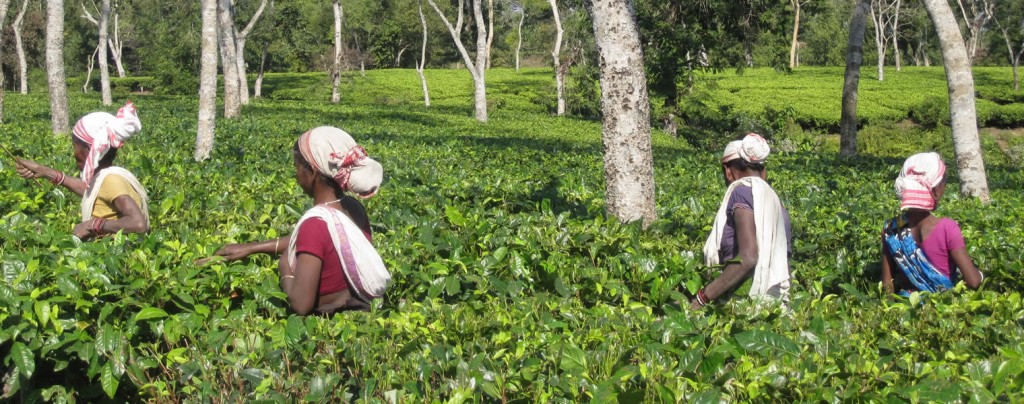
The threat of global warming on the livelihoods of tea growers in Assam, India, is the focus of an international study by Southampton geographers.
The international tea trade is one of the largest in value among tropical and subtropical crops, but until now little attention has been paid to the value of tea-growing landscapes for livelihood security, or the impact of climate change on tea production (in Assam). Research undertaken by the University, with Assam’s Tocklai Tea Research Institute, will begin to fill the gap by investigating livelihoods, climate change and agricultural practices in Assam.
“Assam is a state with great economic importance in the tea trade and livelihoods are entirely dependent upon tea production,” explains Dr Ellie Biggs, the study’s Southampton lead. “Changes in regional climate are a potential threat to the production of Assamese tea, both in terms of quality and quantity.”
As well as climate-related risks, such as flooding of the Brahmaputra River and increasing temperatures, people’s livelihoods are under threat from changes in tea production practices, low daily wages for tea workers and a growing population.
To combat these issues, the research focuses on moving tea crops and other food systems towards ‘safe spaces’, where food security and livelihoods are sustained and the system is resilient to climate change. These practices aim to ensure sustainable increases in productivity and income, enhance the crops’ resilience to climate change and mitigate agriculture’s contribution to climate change.
The team presented the initial outcomes of the project, which is funded under a UK-India Education and Research Initiative Department of Science and Technology scheme, at the World Water Congress meeting in Edinburgh in May.


